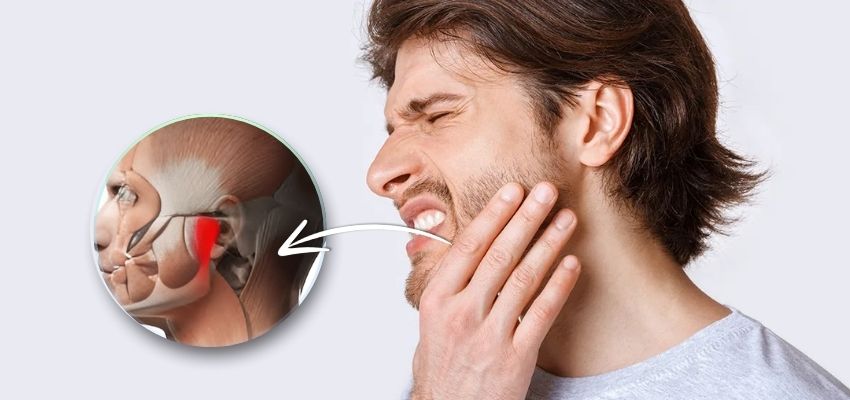TMJ Treatment In Tirupati
Do you experience aching pain around the ear or pain while chewing? If this scenario resonates with you, you might be suffering from TMJ disorder. Ignoring these signs and thinking they are normal could lead to serious health-related problems. If you are looking for TMJ treatment in Tirupati, look no further than Dr. Praveen Kumar, who has solved the problems of individuals who were facing similar jaw issues.

What is TMJ?
TMJ is Temporomandibular Joint, which connects your jawbone to your skull. TMJ disorders (TMD) is a series of several conditions affecting this joint, causing dysfunction and pain in the jaw joint and the muscles controlling jaw movement.
What are the symptoms of TMJ disorders?
Common symptoms of TMJ disorders include:
- Pain or tenderness in the jaw
- Aching pain around the ear
- Difficulty or discomfort while chewing
- Locking of the jaw, making it hard to open or close the mouth
- Clicking or popping sounds when closing or opening the mouth
- Headaches or neck aches
What causes TMJ disorders?
TMJ disorders can be caused by several factors, such as:
- Injury: Trauma to the jaw or head
- Arthritis: Osteoarthritis or rheumatoid arthritis affecting the joint
- Jaw Misalignment: Misaligned teeth or bite
- Bruxism: Habitual grinding or clenching of teeth
- Stress: Leading to muscle tension in the jaw
How is TMJ diagnosed?
Diagnosis of TMJ disorders typically involves:
Medical History: Discussing your medical history and symptoms with your dentist.
Physical Examination: Examining your jaw, face, and neck and checking for tenderness, clicking, or difficulty in movement.
Imaging Tests: X-rays, MRI, or CT scans may be used to get a detailed view of the TMJ and surrounding structures.
What are the treatment options for TMJ disorders?
TMJ treatment includes a variety of options based on the severity of the condition:
Self-Care Practices: Applying ice or heat, eating soft foods, avoiding extreme jaw movements, and practicing stress-relief techniques.
Medications: Over-the-counter pain relievers, anti-inflammatories, muscle relaxants, or prescription medications.
Physical Therapy: Exercises for strengthening jaw muscles, improving mobility, and reducing pain.
Dental Appliances: Splints or mouth guards to prevent teeth grinding and reduce pressure on the Temporomandibular Joint.
Injections: Corticosteroid injections or Botox to relieve pain and improve jaw function.
Your dentist will help you identify the right treatment option for your jaw problems based on your health conditions and the severity of the problem.
Is TMJ treatment painful?
Most TMJ treatments are non-invasive and cause minimal discomfort. Medications and physical therapy are designed to relieve pain and improve function. Surgical options are generally considered only when conservative treatments fail and are performed under anesthesia to minimize pain.
How long does TMJ treatment take?
The duration of TMJ treatment varies depending on the severity of the disorder and the chosen treatment approach. Self-care and physical therapy can show improvement within weeks or months. Dental appliances and medications may be used for several months. Surgical treatments require longer recovery times and follow-up care.
How can I prevent TMJ disorders?
Preventive measures include:
Stress Management: Practicing relaxation techniques to reduce jaw tension.
Avoiding Harmful Habits: Refraining from chewing gum, biting nails, or clenching teeth.
Proper Posture: Maintaining good posture, especially when working at a desk or computer.
Regular Dental Check-ups: Ensuring your bite is properly aligned and addressing any dental issues promptly.
When should I see a doctor for TMJ disorders?
You should seek medical attention if you experience:
- Persistent pain or tenderness in your jaw
- Difficulty in opening or closing your mouth
- Clicking or popping sounds with pain
- Locking of the jaw joint
- Headaches or neck pain associated with jaw movement
Schedule a consultation with Dr. Praveen Kumar to know more about TMJ Treatment in Tirupati.




